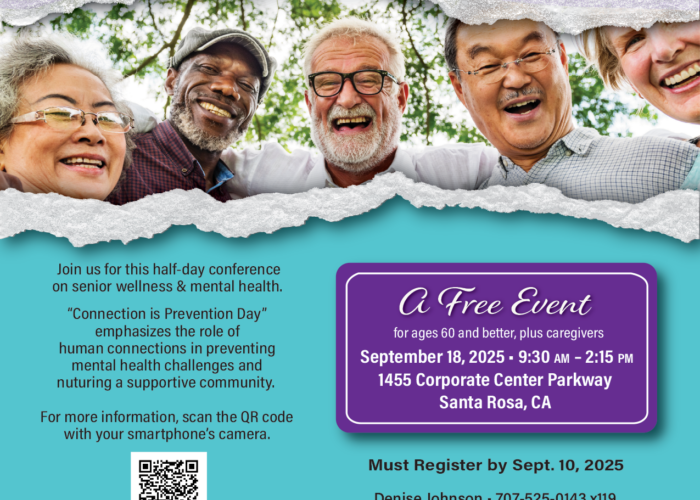Health
What It’s Really Like Living With Both a Heart Condition and Dementia
When someone you love is living with both a heart condition and dementia, some of the symptoms can overlap.
Some changes don’t arrive with a clear explanation. An older loved one who usually does well in the mornings suddenly seems foggy by mid-afternoon. Walking from the bedroom to the kitchen feels more taxing than it used to. You notice more hesitation, more pauses, more moments that make you stop and think, something’s different.
When a loved one is living with both a heart condition and dementia, those subtle changes often have more than one cause. Dementia affects how the brain processes information, but heart health affects whether the brain has the oxygen and blood flow it needs to function at all.
Why the Brain Feels the Effects of Heart Disease So Quickly
The brain is incredibly sensitive to … Read More »
This Tactic to Improve Emotional Health in Seniors May Surprise You!
Try this one effective strategy to boost emotional health in seniors and see the difference it can make!
When caring for an older adult, it’s natural to focus on physical health: blood pressure, medications, diet, and mobility. But what about the unseen risks? Emotional health in seniors plays just as critical a role in overall well-being. Loneliness, stress, and depression can all silently chip away at health, making recovery slower and daily life more difficult.
Connection is Prevention!
Connection is Prevention!
Join us on Sept. 18th for a super and FREE event! The Sonoma Co. Behavioral Health department presents a half-day conference focused on senior wellness and mental health. Join a wealth of community partners for FREE Continental Breakfast & Lunch, with several speakers, sessions, vendors, prizes & more!
September 18, 2025, 9:30am – 2:15 pm
1455 Corporate Center Parkway
Santa Rosa, CA
Registration required by Sept. 10.
Contact Denise Johnson: 707-525-0143×119
or DJohnson@CouncilonAging.com
See you there!
Noticing Shifts in Senior Sleep Patterns? Here’s What’s Normal – and What’s Not.
Senior sleep patterns normally shift in aging, but there are some exceptions you’ll need to be aware of.
Ever wonder why Dad falls asleep in the recliner before dinner, then wakes up at 3 a.m. ready to reorganize the garage? Or why Mom suddenly insists on a 7 p.m. bedtime but still wakes up groggy?
Exercise Tips for Older Adults You’ll Actually Want to Try
These exercise tips for older adults are fun, doable and perfect for boosting health and connection.
It doesn’t take a major life event to spark a desire for change. Sometimes it’s the little things: a restless night, feeling sluggish, or hearing a loved one say, “I just don’t feel like myself lately.” If that sounds familiar, the solution may be simpler than expected. These exercise tips for older adults offer small, realistic ways to get moving again, and feel better in body, mind, and mood.
Yes, There’s Help for Chronic Fatigue in Older Adults
Learn how to recognize and better manage chronic fatigue in older adults.
Some mornings, the snooze button is your best friend—offering a few extra precious moments of rest. But for many older adults, fatigue is more than just morning grogginess; it’s an all-encompassing exhaustion that seeps into every part of their day. As one chronic fatigue sufferer vividly described, “I feel like my battery is permanently drained. It’s as if I’m a dish rag that’s been wrung out and left with nothing to give.”
Recognizing and Resolving Senior Anxiety
If you suspect senior anxiety in someone you love, help is available.
Does an older adult you care about seem more withdrawn, restless, or forgetful than usual? While these changes may appear to be part of aging, they might actually indicate something deeper: senior anxiety.
Anxiety is more than just occasional worry or stress. In older adults, it can manifest in subtle or unexpected ways, including:
Persistent, obsessive thoughts
Recurrent nightmares that disrupt sleep
Repetitive behaviors, like checking and re-checking that appliances are off
Physical symptoms, such as sweating, dizziness, or a racing heart
Overreactions to otherwise manageable stressors
What Contributes to Anxiety in Aging Adults?
Aging brings unique challenges that may contribute to anxiety, including:
Side effects from medications
Chronic illnesses or reduced mobility
Grieving the loss of a loved one
Concerns about declining independence or financial stability
Unresolved childhood trauma
These factors, combined with changes in … Read More »
Tips to Overcome the Challenges of Medical Tests for Older Adults
Ease the process of medical tests for older adults with these tips.
There’s often nothing “routine” about a routine checkup. You may arrive to your appointment perfectly fine, but leave with orders for blood work along with other medical tests a doctor recommends to keep you as healthy as possible. These tests may be nothing more than a minor inconvenience for you, but medical tests for older adults could be challenging for many reasons: transportation problems, mobility issues, thinner skin, fragile veins, cognitive difficulties, and much more.
Supporting Mental Health in Aging Parents and Breaking the Stigma
Supporting mental health in aging parents starts with recognizing the signs and addressing the stigma around mental health care.
Mental health is a critical aspect of well-being throughout life, and it becomes even more significant as our parents grow older. For many older adults, however, talking about mental health can be especially difficult due to ingrained stigmas and the values they were raised with. It’s important to understand why older loved ones might be hesitant to discuss mental health and to recognize the signs that they might be struggling. This knowledge can guide you in supporting mental health in aging parents to ensure they receive the support and care they need.
Tips to Incorporate Fruits and Veggies into a Senior’s Diet
Learn how to incorporate fruits and veggies into a senior’s diet today!
Most people, including seniors, prefer carbs to carrots. And that can make it challenging to meet a senior’s nutritional needs. The Center for Disease Control and Prevention shares that only one in 10 older adults is meeting the recommendation of at least two servings of fruit and three servings of vegetables each day. Numerous studies have revealed that older adults who do follow these guidelines reduce their risk for heart disease, diabetes, as well as other chronic health issues, and ultimately live longer lives.
When you run into challenges finding a diet that supports a senior’s nutritional needs, you may have to find creative ways to incorporate fruits and veggies into a senior’s diet. For example:
Add a crunch. If the senior loves a crunch, there … Read More »

















